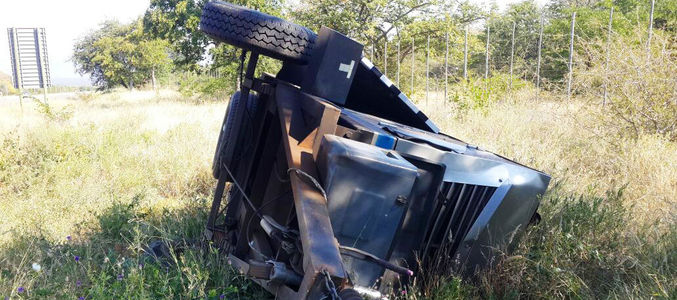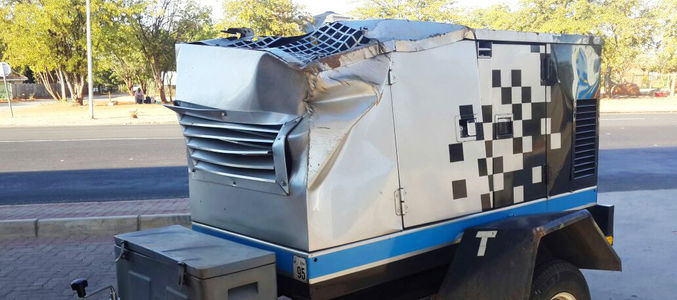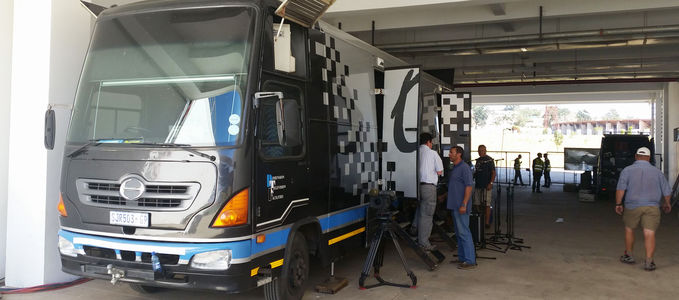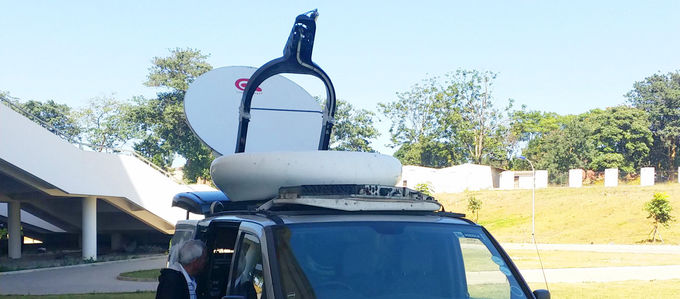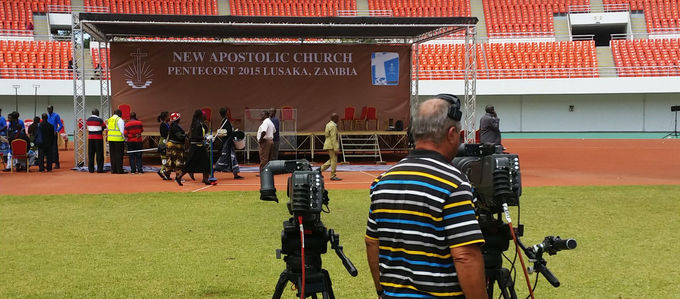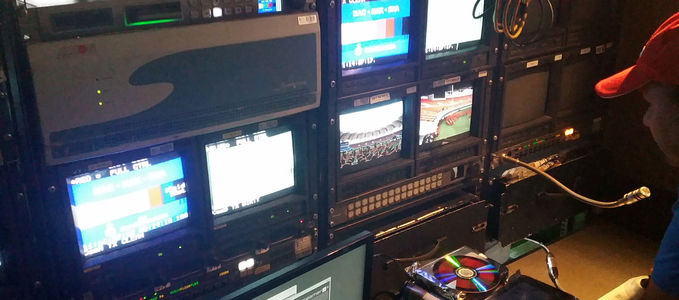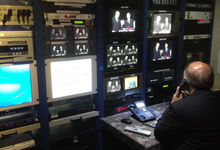Mishap threatens Pentecost transmission
It nearly happened. For a little bit everyone involved held their breath, because the transmission of the Pentecost service from Lusaka was actually in jeopardy. While the broadcasting trucks were on their way from South Africa to Lusaka in Zambia, an important piece of equipment was damaged.
“We had a bit of a situation on our way to Lusaka,” it says in an email of the OB team to District Apostle Charles Ndandula in Zambia. What had happened? On the way from South Africa, where the broadcasting firm is located, the trailer carrying the generator had come loose near the border with Zimbabwe. It rolled into the bushes and tipped over.
The generator was not just any old piece of equipment, but a 40-kilovolt-amperes generator that was supposed to provide power not only for the outside broadcast trucks, but also for the uplink that was to send the signal to the broadcasting centre at Bischoff Publishers in Germany, from where the signal was to be distributed via eleven additional satellites into all parts of the world.
A quick look was enough: the generator was definitely damaged. “We will not be able to use it as the main power unit for the OB trucks. The unit was left behind in Musina,” it said in the email. Bustling activity began in the administrative offices of the Church in Lusaka. And before long they actually managed to find and rent a replacement unit.
“Generators are part of the standard equipment in Africa,” Erich Senn, the manager of administration of the New Apostolic Church International, says. He assisted with the organization in Zambia. Generators are often used as a backup when there is a power outage in the public grid. In some areas, in fact, diesel generators are the main power supply.
The transmission of the Pentecost service was secured. “The replacement unit has arrived and is working,” Roland Schmitt reported, who was in Zambia for Bischoff Publishers to coordinate the work with the South African broadcasting team. Images from eight cameras and the sound from 15 microphones had to be processed in the OB truck and then distributed over about a dozen satellites to five continents.
Article info
Author:
Date:
Keywords:
Andreas Rother
27.05.2015
Zambia,
divine services for ministers,
Pentecost


